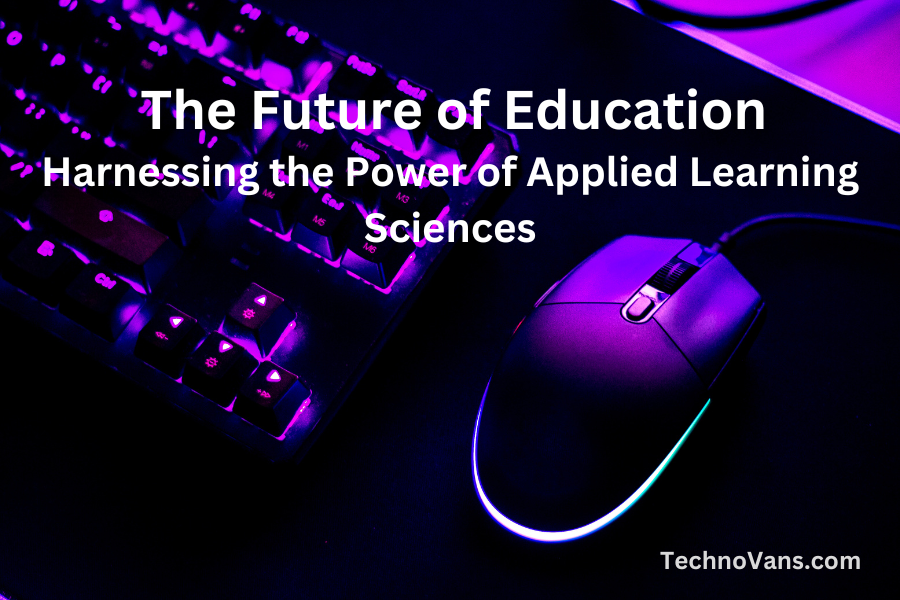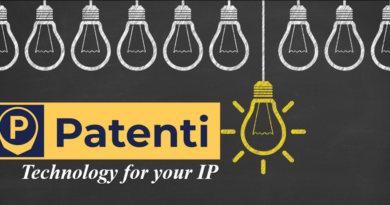The Future of Education: Harnessing the Power of Applied Learning Sciences
Key Takeaways:
- Applied learning sciences integrate theory and practice for effective learning outcomes.
- Technological advancements are reshaping educational strategies for diverse learners.
- Data-driven insights are crucial for personalizing educational experiences.
- Collaboration and online platforms enhance accessibility and inclusivity in education.

The Changing Landscape of Education
Education constantly evolves, responding to dynamic shifts in societal needs, technological advancements, and new research insights. This continuous transformation has set the stage for innovative educational environments that empower learners with diverse needs and aspirations. These programs reflect the growing recognition of online learning as a viable and effective mode of education, especially in a world increasingly reliant on digital solutions. Digital transformation is further revolutionizing education by offering accessibility to vast resources and interactive tools, thereby fostering a more engaging and inclusive learning experience for all involved. Educators are now able to implement a variety of educational technologies to cater to every student’s needs, making learning not just a possibility but a success.
Understanding Applied Learning Sciences
Applied learning sciences stand at the forefront of these educational advancements. Combining cognitive science, psychology, and academic research insights, it strives to create optimized learning environments that yield effective educational outcomes. This multifaceted approach demands understanding how different learning theories can be applied to benefit learners with varying needs. A significant development is the emergence of Ed.D Online programs, which blend theoretical knowledge with practical applications, equipping educators to tackle contemporary challenges efficiently. Methods employed in applied learning sciences go beyond traditional teaching models, focusing on developing critical thinking, problem-solving, and analytical skills among students. This holistic approach bridges the gap between theoretical understanding and practical, real-world application, preparing learners for a future that values these skills more than ever. By engaging students with relevant and applicable content, educators can inspire a lifelong love for learning and inquiry, empowering students to apply their knowledge in real-world contexts effectively.
Technology’s Role in Learning
Technological advances have become invaluable assets in the educational toolbox, enabling educators to create interactive and personalized learning experiences. Devices like tablets and educational apps provide students with dynamic, hands-on opportunities to engage with the material in a manner that aligns with their unique learning styles. These tools are crucial for supporting students with special needs, as they often include functionalities that accommodate diverse learning abilities. For instance, speech-to-text applications and interactive diagrams can help bridge the gap for students with learning disabilities, making education inclusive and accessible. Technology’s impact is broad, ensuring all students receive a quality education regardless of their challenges. As highlighted by the Economist, such technologies are enhancing access and inclusivity, allowing students with disabilities to learn at their own pace without encountering traditional barriers. Moreover, the use of virtual reality (VR) and augmented reality (AR) is opening new avenues for experiential learning, allowing students to explore environments and concepts in an immersive way that was previously unimaginable.
Data-Driven Personalization
Integrating data analytics into education has revolutionized how personalized learning experiences are crafted. By analyzing real-time data, educators can uncover patterns, swiftly determine areas where students might struggle, and tailor instructional approaches to cater to individual learning needs. This personalized approach enhances student engagement and addresses educational disparities by effectively targeting interventions. Engineered with adaptive technologies, educational platforms can modify content difficulty and pace according to individual student performance, thus maintaining engagement and motivation. The ability to provide individualized support based on data insights is reshaping the landscape of modern education, ensuring that it meets the diverse needs of each learner. This model is particularly beneficial in large, diverse classrooms where teachers may struggle to deliver personalized attention to every student.
Collaborative Platforms and Online Learning
The rise of collaborative platforms and online learning environments is another hallmark of modern education. These platforms dissolve geographical boundaries, enabling students from around the globe to engage in diverse and enriching learning communities. Students gain broader perspectives and experiences beyond traditional classroom walls by connecting with peers and instructors worldwide. Such exposure is instrumental in fostering global awareness and cultural sensitivity among students, two crucial skills in today’s interconnected world. Collaboration fosters meaningful exchanges of ideas, nurturing a sense of community and enhancing the overall learning process through exposure to various thoughts and cultural insights. These platforms improve academic outcomes through peer support and resource sharing and prepare students for future work environments that increasingly value digital literacy and collaboration.
The Future: Integrating Human and Machine
As we look toward the future, the integration between humans and machines in education is poised to deepen. Artificial intelligence (AI) and machine learning offer transformative potential by providing adaptive learning experiences and personalizing real-time content delivery. These advancements enhance educational outcomes by anticipating learners’ needs and providing tailored instruction. For example, AI can provide teachers with insights about their class’s performance, suggest student resources based on their weaknesses, or even automate administrative tasks to give teachers more time to focus on classroom interaction. However, it is paramount to ensure that these technologies complement rather than replace human interactions, maintaining a balanced, human-centric educational approach that values the nuanced contributions of educators alongside technological progress. The role of educators will evolve, focusing less on delivering content and more on facilitating meaningful learning experiences and mentoring students.
Navigating Challenges in Modern Pedagogy
Despite the promising advancements, the journey toward a fully integrated educational landscape has challenges. Implementing new technologies requires substantial infrastructure investment and comprehensive professional development for educators to maximize the benefits of these tools. Commitment to ongoing training ensures teachers can effectively integrate rapidly evolving technologies into their pedagogical strategies. Moreover, using educational data demands stringent privacy and security protocols to protect student information and maintain trust within academic environments. Parents and educators express concerns about data privacy, emphasizing the need for transparent practices that safeguard students’ data while leveraging it to enhance learning experiences. To successfully navigate these challenges, educational stakeholders must collaborate to develop strategies that foster a secure and conducive learning environment for all students. Educational systems can adapt to new challenges by prioritizing resilience and agility and providing high-quality learning experiences.
Embracing Continuous Innovation
Embracing continuous innovation is crucial to remain at the forefront of educational evolution. Schools, educators, and policymakers must cultivate an environment where research, experimentation, and collaboration are encouraged and supported. By adapting to emerging educational needs and leveraging new tools and strategies, education can remain relevant and practical, preparing students for the challenges and opportunities they will encounter in the dynamic world ahead. The journey toward effective education is ongoing, and significant strides can be made with the right tools and approaches. Successful educational systems will remain flexible, always looking to learn from past experiences and integrate new findings. Empowering future generations requires a commitment to evolving educational practices, ensuring students have the knowledge, skills, and creativity needed to thrive in an ever-changing world.



